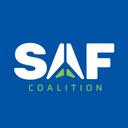The USDA on Oct. 15 held a third virtual listening session as part of its public consultation on climate-smart ag for biofuel feedstocks. During the event, biofuel groups advocated for flexibility in CSA requirements for the 45Z credit.
The IEA on Oct. 9 published its annual Renewables market report, which for the first time includes a chapter focused on renewable fuels that outlines expected growth in liquid biofuels, including SAF, biogas, and other forms of bioenergy through 2030.
The Clean Energy Ministerial (CEM) Biofuture Platform Initiative has unveiled a new Global Biomass Resource Assessment, providing groundbreaking data on current and future sustainable biomass supplies around the world.
U.S. Sens. Jerry Moran, R-Kan.; Tammy Duckworth, D-Ill.; John Boozman, R-Ark.; and Amy Klobuchar, D-Minn.; recently launched the Senate Sustainable Aviation Caucus to promote the longevity of the aviation industry and the renewable fuels industry.
Sen. Roger Marshall, R-Kan., and Rep. Tracey Mann, R-Kan., on Sept. 24 introduced Farmer First Fuel Incentives Act, a bill that aims to extend the 45Z credit through 2034 and restrict the credit to fuels made from domestically produced feedstock.
The U.S. EPA has announced that 2.06 billion RINs were generated under the RFS in August, down from 2.07 billion generated during the same month of last year. Total RIN generation for the first eight months of 2024 reached 16.49 billion.
Strategic Biofuels has published a free resource, “A Practical Guide to Forestry Feedstock Under the Renewable Fuel Standard.” The guide is the result of the work completed as part of a cooperative agreement signed with the U.S. Forest Service.
The RFA has asked the U.S. EPA for an update on the agency’s investigation of certain biofuel feedstock imports and is urging the adoption of more stringent feedstock verification requirements for imported used cooking oil and tallow.
Legislation introduced in the California State Assembly on Sept. 11 aims to prevent the California Air Resources Board from amending the state’s Low Carbon Fuel Standard regulations prior to Jan. 1, 2026.
Valerie Sarisky-Reed, director of the U.S. Department of Energy’s Bioenergy Technologies Office, discusses ways her agency is doing its part to strengthen America’s bioeconomy and supply chain to support clean energy innovation.
Agricultural Secretary Tom Vilsack announced the release of a SAF Grand Challenge fact sheet on Sept. 11 at the North American SAF Conference & Expo. The DOE also opened a $12 million funding opportunity to support integrated biorefineries.
Agriculture Secretary Tom Vilsack on Sept. 10 explained USDA’s work to support guidance for the 45Z Clean Fuel Production Credit and candidly discussed the possible repercussions of efforts to limit the credit to domestically produced feedstocks.
More than three dozen members of the U.S. House of Representatives are urging the U.S. Treasury Department to ensure only fuels manufactured from domestically sourced feedstocks qualify for the upcoming 45Z Clean Fuel Production Credit.
The SAF Coalition submits comments on energy credits and incentives to House Ways and Means Committee
The Sustainable Aviation Fuel (SAF) Coalition submitted comments in response to requests for stakeholder comments on energy credits and incentives from the Supply Chain Tax Team of the U.S. House of Representatives’ Committee on Ways and Means.
The U.S. DOE has awarded Small Business Innovation Research and Small Business Technology Transfer Phase II funding to six bioenergy projects, including those focused on low-carbon liquid biofuels for aviation, marine and rail transportation.
The U.S. Department of Energy Bioenergy Technologies Office (BETO) is overseeing a call for industry partnerships to connect industry stakeholders with the capabilities of the Feedstock-Conversion Interface Consortium.
The Sustainable Advanced Biofuel Refiners Coalition, a national biodiesel trade association made up of nearly 60 organizational members, submitted comments Aug. 27 to CARB on proposed changes to the state’s LCFS.
Clean Fuels Alliance America on Aug. 28 sent a letter to Treasury Secretary Janet Yellen, urging the agency to issue guidance, including safe harbors, to the 45Z Clean Fuels Production Credit by Sept. 1.
A proposed cap on soy- and canola-based biodiesel and renewable diesel could raise prices of fuel and goods for California consumers and set back decarbonization efforts by years, according Clean Fuels Alliance America.
The government of Brazil on Aug. 22 announced it will offer R$6 billion ($1.09 billion) to support the development of biorefineries to produce sustainable aviation fuel (SAF) and sustainable marine fuels.
The Federal Aviation Administration on Aug. 16 awarded $244.5 million to 22 projects that produce, transport, blend or store sustainable aviation fuel (SAF) and for scoping studies related to SAF infrastructure needs.
The California Air Resources Board on Aug. 12 published a notice outlining modifications to its proposed LCFS amendments, including those related annual carbon intensity (CI) targets, biomass-based diesel feedstocks, and SAF.
The Surface Transportation Board is seeking nominees to fill five vacancies on its Rail Energy Transportation Advisory Committee. One vacancy is to be filled by a biofuel producer or feedstock grower.
The 2024 North American SAF Conference & Expo will consist of panels that describe the newest developments in the SAF Industry. Topics such as biofuel crops, federal policies, the increase of SAF usage worldwide, and more will be presented.
Reps. Mike Flood, R-Neb., and Troy A Carter, Sr., D-La., on Aug. 9 introduced the Sustainable Aviation Fuel (SAF) Information Act. The bill directs the U.S. Energy Information Administration to include SAF data in its weekly and monthly reports.
Gevo Inc. on Aug. 9 released a new report by Charles River Associates demonstrating the benefits of sustainable aviation fuel (SAF) production, including at Gevo’s planned Net-Zero 1 (NZ1) alcohol-to-jet (ATJ) SAF facility in South Dakota.
The National Renewable Energy Laboratory, in partnership with the U.S. Department of Energy Bioenergy Technologies Office, released the first two parts of the Sustainable Aviation Fuel (SAF) State-of-Industry Report.
Sens. Sherrod Brown, D-Ohio, and Roger Marshall, R-Kan., and 13 of their colleagues are urging Treasury Secretary Janet Yellen to restrict the 45Z Clean Fuel Production Credit to fuels made from domestic feedstocks.
Thailand’s newly proposed National Energy Plan is expected to set a target for sustainable aviation fuel (SAF) starting in 2026, according to a report filed with the USDA. The plan also includes targets for ethanol and biodiesel.
The Sustainable Aviation Fuel (SAF) Coalition responds to USDA request for information on biofuel feedstocks, encouraging the agency to ensure federal policies are science-based and technology and feedstock neutral.
Advertisement




























